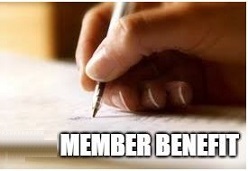 Member Benefit #29
Member Benefit #29
Anyone working in today’s publishing industry is in a double bind. Not only is an editor expected to hit deadlines and produce compelling work, but they also have to be up to speed on industry developments and trends—whether for their own work or to help clients. The Hot Sheet is an email newsletter available only by subscription, delivered every other Wednesday at midday. It’s modeled on the financial-advice newsletters produced by analysts for their clients on Wall Street, and on the Publishers Lunch newsletter that many publishing professionals subscribe to.
 NAIWE members receive 20% off a subscription!
NAIWE members receive 20% off a subscription!
Visit the NAIWE website to see all of the member benefits.

 We wanted to get to know Laura Pennington Briggs (
We wanted to get to know Laura Pennington Briggs (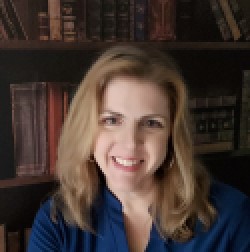 Heather Pendley (PendleysProEditing.com) is a freelance indexer and copy editor. She is an ASI Director at Large, the Membership & Social Media Committee VP for SD/PEN, was an EFA 2020–21 Board of Governors Member at Large, and judged ACES 2020 Headline Competition. Heather lives in the San Diego area with her family, which includes two rescue dogs.
Heather Pendley (PendleysProEditing.com) is a freelance indexer and copy editor. She is an ASI Director at Large, the Membership & Social Media Committee VP for SD/PEN, was an EFA 2020–21 Board of Governors Member at Large, and judged ACES 2020 Headline Competition. Heather lives in the San Diego area with her family, which includes two rescue dogs. April: English Language Month. A month-long celebration of the uniqueness of the English language and all the learners working hard to master it.
April: English Language Month. A month-long celebration of the uniqueness of the English language and all the learners working hard to master it. Whether you are a hobbyist or a full-time writer/editor, Hart’s
Whether you are a hobbyist or a full-time writer/editor, Hart’s  Alexandra Goodman
Alexandra Goodman
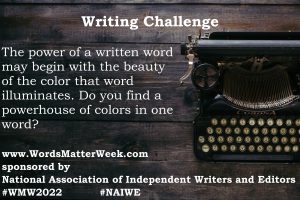 The power of a written word may begin with the beauty of the color that word illuminates. Do you find a powerhouse of colors in one word?
The power of a written word may begin with the beauty of the color that word illuminates. Do you find a powerhouse of colors in one word?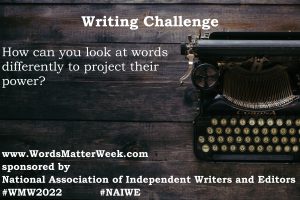 How can you look at words differently to project their power?
How can you look at words differently to project their power?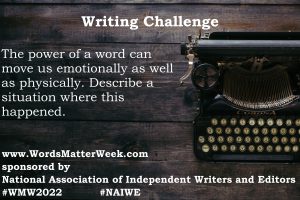 The power of a word can move us emotionally as well as physically. Describe a situation where this happened.
The power of a word can move us emotionally as well as physically. Describe a situation where this happened.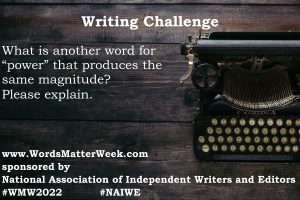 What is another word for “power” that produces the same magnitude? Please explain.
What is another word for “power” that produces the same magnitude? Please explain.